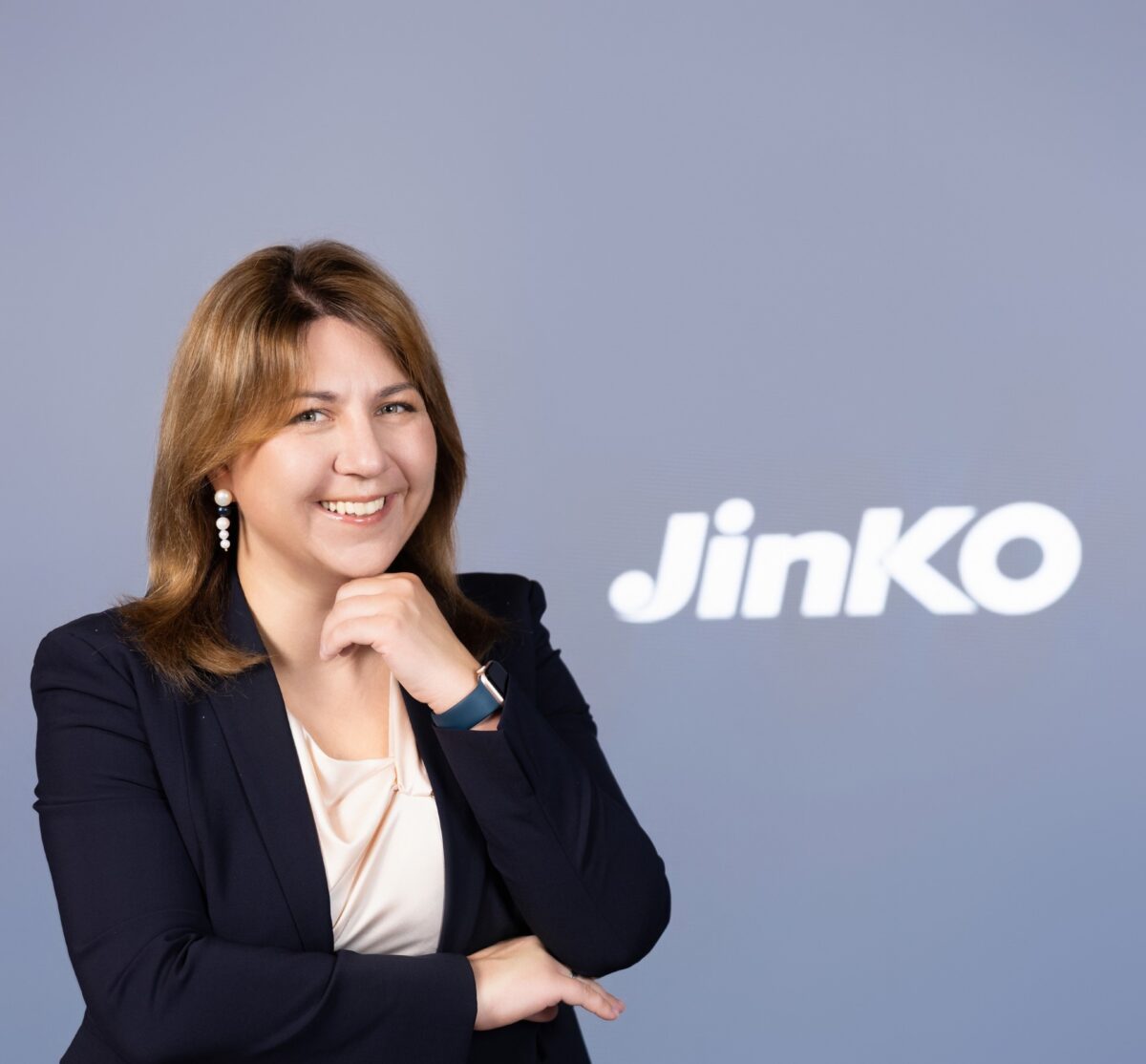There are always going to be barriers for women, be it intentional or unintentional. I do not think the solar industry itself imposed more difficulties than any other industry that I have worked in. The challenge surely was to become a quick learner, and network. Fast. Because the industry itself is so dynamic. I’ve also been very fortunate to see an array of different types of leaders, and mentors, both male and female, who inspired me from the very beginning when I joined JinkoSolar, and who have helped me to grow both professionally and individually. They embodied empathy, integrity and excellence. They have also been the strongest supporters of my ideas, and helped me to gain the voice I needed this as a junior. So, to me, that is now the most important thing to pay forward: to make sure the other voices are heard.
It is a well-known fact that the global renewable energy sector continues to be male-dominated. Statistics show that women make up only 35% of the workforce in the global renewable energy sector. Although there is still a lot to be improved, personally I see a really strong trend in women, of all ages, being presented with significant opportunities with the right employer. JinkoSolar does not only have an average of 50% of women working in Europe in a variety of roles in sales, technical, logistics, operations, and marketing, but it is also proud to have 50% of the European management team also filled by women. Also, on a global level, JinkoSolar is known for its strong promotion of talented employees, both male and female, which will ultimately pave the way for the next generation to lead the energy transition.
We need to attract and retain women, and then move them up through the ranks into profit-and-loss roles because those are feeders for the C-suite. To remedy this, ensuring equal opportunity for all employees is key. That comes in many different forms. First, it is important that we look differently at the skills and qualifications we set up for a particular role: we have to move away from checking traditional boxes. Because the truth is, most of the boxes that we’re looking to check were created by men for men. The sector itself should offer more technical training for women wanting to work in solar and launch more campaigns to promote gender equality. Lastly, more policies and programs to encourage women to work in the sector should be created, and introduce effective practices to encourage the integration of female workers into their organizations and close the gender gap.
I always emphasize that creating networks is essential for women; networks where they can build meaningful relationships, get support, find role models, and, most of all, where they can have a voice and are heard within a safe space. Initiatives like Women in Solar Europe have been reshaping the conversation on diversity and equality in the industry in the EU, and its key role is to empower the next generation of leaders in the solar industry. These groups are a pivotal part of the energy transition and inspire female leaders to challenge the current ecosystem.
Popular content
Aga Michalak is the Head of Marketing, BD and ESG at JinkoSolar EU. With over 15 years of experience in international marketing in various industries ( FMCG, medical devices, and fast-moving consumer electronics) in global companies, she a proven track record designing effective and purpose-driven communication strategies, building brand equity, advocating on behalf of internal and external stakeholders, and developing and managing high-performing teams. Aga has centered her career around creating new methodologies and platforms to build relationships between brands and people. She is passionate about leading with empathy and authenticity and empowering the next generation of leaders in the solar industry.
Interested in joining Aga Michalak and other women industry leaders and experts at Women in Solar Europe? Find out more: www.wiseu.network
The views and opinions expressed in this article are the author’s own, and do not necessarily reflect those held by pv magazine.
This content is protected by copyright and may not be reused. If you want to cooperate with us and would like to reuse some of our content, please contact: editors@pv-magazine.com.


2 comments
By submitting this form you agree to pv magazine using your data for the purposes of publishing your comment.
Your personal data will only be disclosed or otherwise transmitted to third parties for the purposes of spam filtering or if this is necessary for technical maintenance of the website. Any other transfer to third parties will not take place unless this is justified on the basis of applicable data protection regulations or if pv magazine is legally obliged to do so.
You may revoke this consent at any time with effect for the future, in which case your personal data will be deleted immediately. Otherwise, your data will be deleted if pv magazine has processed your request or the purpose of data storage is fulfilled.
Further information on data privacy can be found in our Data Protection Policy.